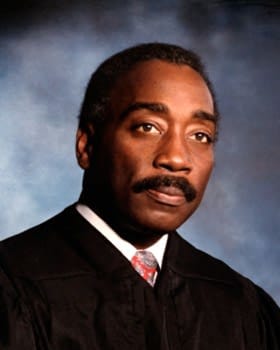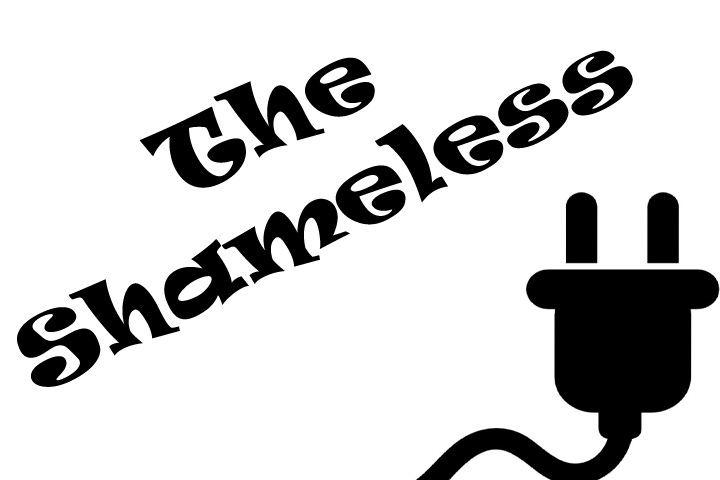The Presidential Records Act and the Espionage Act and Donald Trump
The Federal Court in Miami is named after a decorated Black Judge.
The Wilkie D. Ferguson, Jr. Federal Courthouse
Issue #342: Government June 15, 2023
On Tuesday, June 13, 2023, Donald J. Trump became the first former president to be indicted on Federal criminal charges. He pled "not guilty" to the seven charges and 37 counts, which included the illegal retention of government documents and the illegal retention and possible showing of classified documents relating to national security.
As usual, the now disgraced twice-impeached, twice-indicted, twice-loser of the popular vote, and declared sexual abuser lied about the federal charges.
He was not accused of taking documents after he left office, but of retaining those documents and not returning them when repeatedly requested. He was not indicted under the Presidential Records Act as he claimed.
He was indicted under the Espionage Act, not as a "spy," but because he illegally retained and displayed top secret and classified documents related to national security.
The Presidential Records Act and the Espionage Act are two important pieces of legislation that provide guidance on how government records and information should be managed.
Please make sure to view and act on the important information at the end of this article to help support “We Are Speaking.” Thank you!
The Presidential Records Act (PRA) is a United States federal law that governs the management and preservation of records created or received by the President, the Vice President, and their staff during their time in office. Enacted in 1978, the PRA was a response to the Watergate scandal and the controversies surrounding the disposition of President Richard Nixon's records.
Key Provisions of the Presidential Records Act
Ownership of Records: The PRA establishes that all records created or received by the President, the Vice President, and their immediate staff in the course of performing their official duties are the property of the United States Government, rather than personal property.
Transfer of Records to NARA: Under the PRA, the President and Vice President must transfer all their records to the National Archives and Records Administration (NARA) as soon as they leave office. NARA is responsible for the storage, preservation, and eventual public release of these records.
Determining Personal and Government Records
The process of determining which records are personal and which belong to the government is a critical aspect of implementing the PRA. NARA is the decider, not the president or vice president, and uses specific criteria to make these distinctions:
Government Records: Records that document the constitutional, statutory, and ceremonial duties of the President and Vice President are considered government records. These include materials related to policy decisions, official actions, meetings, speeches, and correspondence with government officials.
Personal Records: Personal records are those that do not relate to the official duties of the President or Vice President. These may include private correspondence, family photographs, personal schedules, and materials related to non-governmental political activities.
The Espionage Act of 1917 is another piece of federal law that makes it a criminal offense for someone to transmit or receive any information related to national defense without authorization from the U.S. government. This act also prohibits anyone from disclosing any information that could be used to the advantage of a foreign country or entity.
This legislation was originally put in place to protect national security during World War I but has been used by the government since then for other purposes, such as preventing espionage or unauthorized disclosure of classified information.
Although taking the documents from the White House when his presidency was over as he did was technically illegal, he got in trouble for not returning the documents as requested by NARA and then by an FBI subpoena. Not only that, he lied to the government when he said he had returned all of the documents and even tried to get his attorneys to also lie to the government.
Then he left highly classified documents around his Mar-a-Lago Club in insecure locations and showed some of them to people at his Bedminster, New Jersey estate who did not have security clearance to view them.
As a matter of fact, Trump's presidential security clearances were invalid as of 12:01 pm on January 20, 2021, when Joe Biden became president.
Federal Judge Wilkie D. Ferguson, Jr. 1938 - 2003
The Wilkie D. Ferguson Jr. U.S. Courthouse
Does Trump know that the courthouse where he appeared for his arraignment is named after a Black man?
The Federal U.S. Courthouse in Miami is named after Wilkie D. Ferguson Jr., an American lawyer and judge who served on various state and federal courts, including the United States District Court for the Southern District of Florida. He was known for being a trailblazer and the first African American appointed to the Miami-Dade County Circuit Court. After his death in 2003, the courthouse was named in recognition of his accomplishments and impact on the legal system.
Judge Wilkie D. Ferguson, the son of Bahamian immigrants, was valedictorian of his high school class, and a graduate of Florida A&M University and Howard University Law School. He was also a paratrooper in the United States Army.
Judge Ferguson was everything Donald J. Trump is not.
Let us know your thoughts about what new information you learned in the comments or in the Substack Notes feature.
You can always leave any questions in the comments or email us.
This article is free to access for 7 days after publication. Please consider becoming a paid subscriber for $5/month or less to access all of the articles and other benefits.
This is your chance to support everything Keith and Pam do. We appreciate you!
Purchase and download your copy of the “Branding And Marketing For The Rest Of Us” eBook for Independent Authors and Creative and Solo Professionals and other valuable eBooks.
Enroll in one of the 6-course bundles designed especially for you: “Author and Book Marketing” and/or “Essential Creative Marketing.”
Purchase your copies of “Detroit Stories Quarterly” issues.
What else do Keith and Pam do?
Where else can you find us?
Click the link below to learn everything you need to know and review everything we offer for independent writers and creative and solo professionals.









